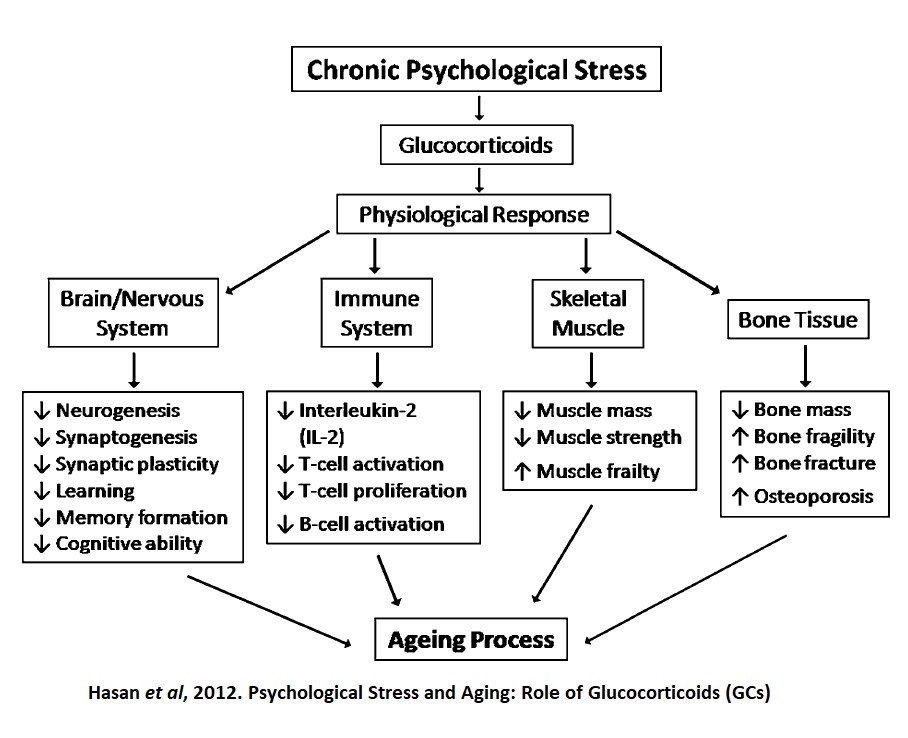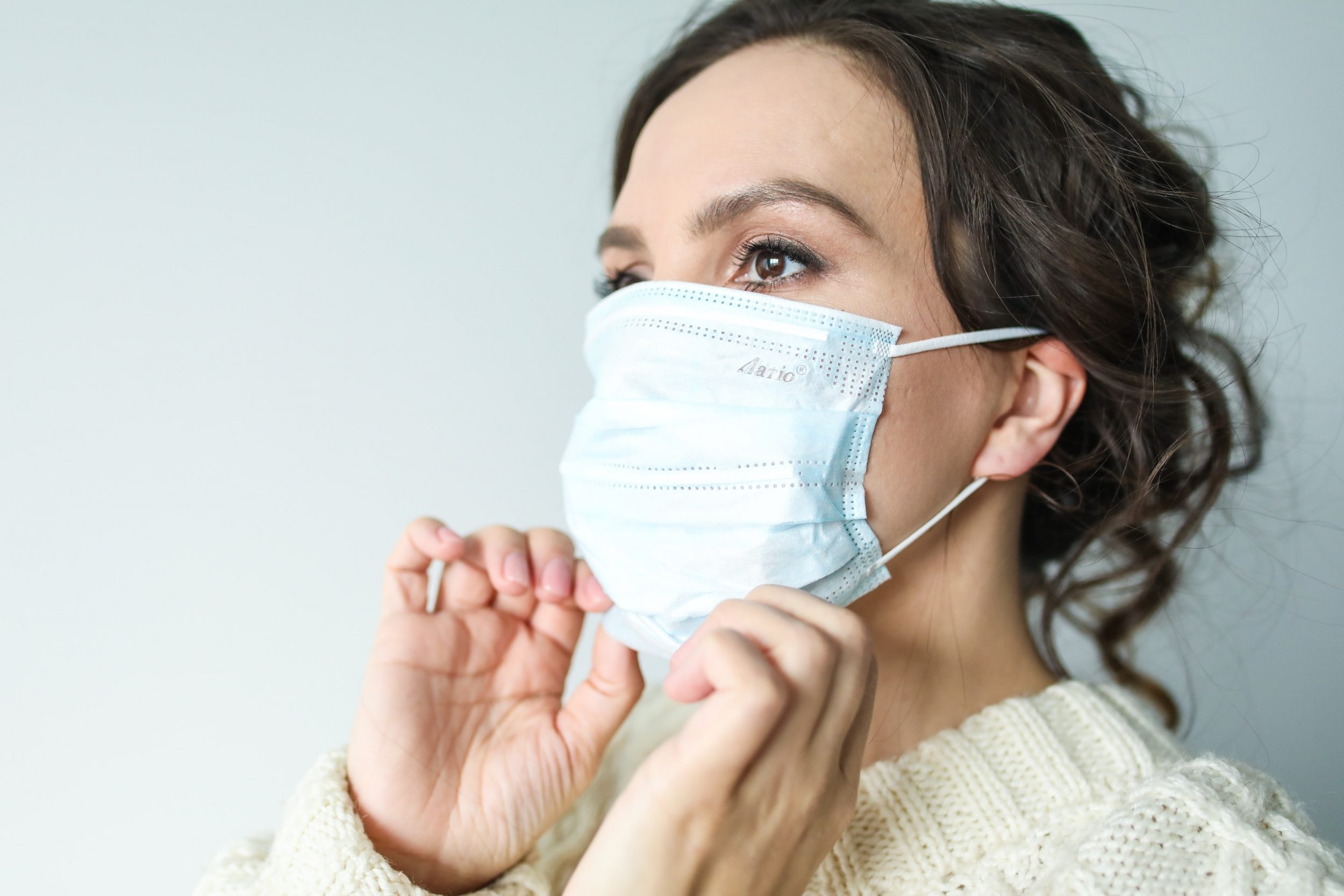This is, of course, easier said than done. Here are some explanations that can help you understand why stress reduces the efficiency of the immune system and some tips to help you better cope with the current situation. For all the subjects I discuss, I always try to explain with some basis from a biological point of view because I believe that the more knowledge we have will allow us to be more motivated to act in order to prevent or reduce its negative impacts on our everyday life.
As I explain at all my conferences, stress is natural. It is a physiological process, necessary for survival, but felt in a unique way for each person. Unique because our means of coping with it or not, depends on the type of stress, our knowledge of its presence, our personality and our personal circumstances. Its consequence on health, as on the immune system, is universal. Let’s start by understanding its impact on health.
State of emergency
We will be focusing on stress in its negative form, used as an emergency, and not the form that accelerates our personal performance (what is often considered good and bad stress). The physiological response to stress exists to allow us to fight or flee. We determine that a situation is dangerous for our survival and we respond by mobilizing energy, increasing the pace and strength of our heartbeat, and producing adrenaline to speed up our actions and decisions.
The stress response – the state of alertness – results from an increase in blood pressure and heart rate, all managed by the brain. Depending on the level of perceived stress and our capacity for personal resistance, the response will be more or less important. However, if the stress persists, this physiological state can favor the appearance of certain diseases, worsen them, and above all, create a large number of symptoms that are physical, emotional and behavioral. This momentary natural reaction therefore becomes problematic when it is chronic or repeated too frequently. It is a state of emergency: it is not good to be constantly in this state of emergency.
Response to chronic stress
Chronic stress not only has an impact on the immune system, but also on a large number of physiological processes that are involved in aging. This would be caused by the production of glucocorticoids. These molecules are responsible, at least in part, for accelerated aging linked to stress. Glucocorticoids are hormones that regulate a large amount of physiological activity. The most well-known would be cortisol. Cortisol is often called the stress hormone because stressed people have higher cortisol levels. Cortisol is used, among other things, to stimulate the energy production during stressful events.
It has been noted that the production of glucocorticoids (GCs) provokes several physiological responses typical of aging. GCs interfere with synaptic plasticity (the ability to rearrange our neurons). This is what makes it easier to forget the fact that we are stressed over long periods of time.
Likewise, GCs cause muscle atrophy, reduce the efficiency of the immune system, and increase bone resorption. Thus, GCs could even cause certain diseases associated with aging. The following figure summarizes several physiological effects of GCs and their link with the aging processes.

Reducing stress
Stress reduces the efficiency of the immune system by producing glucocorticoids, but also reduces the quality of sleep which results in an accumulation of fatigue. What can be done to better manage it?
The management of stress is, first and foremost, a point of view. If we are caught in a traffic jam and we are running late, it does nothing to feel enraged, yell, or even worse, get out of your car to punch the driver who just cut you off! No, it gives you absolutely nothing! So you have to take a deep breath and look at the situation differently. When we cannot control a situation, we must make sure that the situation does not control us! Whenever the rate of stress increases, it’s our health that takes a toll… through a cold (increased risk of infections).
Work to increase your resilience to stress (psychological capacity to react to stress). Here is a link to a marvelous text on resilience related to the coronavirus: COVID-19 Maximizing our resilience (Pascale Brillon Professor in the Department of Psychology at UQAM, French Only).
Currently, with the pandemic, much of the stress comes from the risk of infection, fear, and our feeling of not being in control of what is happening to us. It is often said that the solution to stress is in the actions taken. Know that, on one hand, the Quebec government is taking all possible preventative measures to slow the spread, and on the other hand, your actions make a significant impact as an individual. The fact that you:
- Keep your distance,
- Do not go out if you have symptoms,
- Wash your hands often,
- Consider the multiple risk factors (as much for you as for others: chronic diseases and age).
In relation to reducing stress (a few things in a quick summary):
- Increase your resilience (text by Madame Brillon mentioned above)
- Better understanding of stress (Sonia Lupien’s book)
- Accept situations that cannot be controlled
- Strengthen social ties (talk about your feelings)
- Physical activity
- Meditation/relaxation (two free applications: Respirelax and Petit BamBou).
- Consumption of omega-3 (food or supplements)
- Watch out for caffeine (coffee and energy drinks)
- Reduce refined sugars
- Increase your intake of antioxidants (fruits and vegetables)
- Improve your sleep (recommendations in point 5 of this article)
- Use quality supplements as needed (Vitoli Stress and Anxiety)
References :
- Bradbury J, Myers SP, Oliver C. An adaptogenic role for omega-3 fatty acids in stress ; a randomised placebo controlled double blind intervention study (pilot) [ISRCTN22569553]. Nutr J. 2004 Nov 28 ; 3 :20.
- Brillon, P. 2020. COVID-19 Maximisons notre résilience. La Presse + 13 mars 2020.
- Ditzen B1, Heinrichs M2., 2014. Psychobiology of social support: the social dimension of stress buffering. Restor Neurol Neurosci. Jan 1;32(1):149-62.
- Hasan KM, Rahman MS, Arif KM, Sobhani ME. Psychological stress and aging: role of glucocorticoids (GCs). Age (Dordr). 2012;34(6):1421–1433.
- Simard, E. 2016. Vivre jeune plus longtemps. Marcel Broquet la nouvelle édition. 365 pages.
- Simard et Lambert. 2018. Vivre jeune DEUX fois plus longtemps. Marcel Broquet la nouvelle édition. 270 pages.






